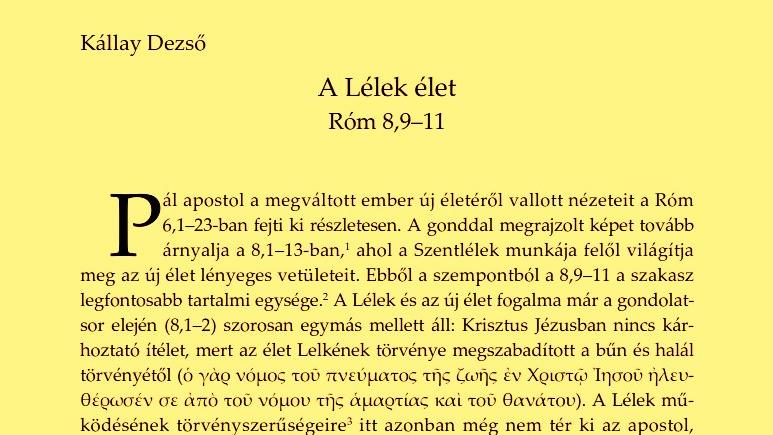Lelkigyakorlat és lelkigondozás
Geistliche Übung und Seelsorge. Der ursprüngliche Zweck meiner Arbeit ist die zur Pfarrarbeit gehörende seelsorgerliche Tätigkeit und die aus den katholischen Traditionen bekannten geistlichen Übungen miteinander zu vergleichen. In den verschiedenen seelsorgerlichen Situationen war die Notwendigkeit der Prävention oder Nachbehandlung immer aufgetaucht. Meine Absicht ist die Brauchbarkeit der meistens nur vom Hörensagen gekannten geistlichen Übungen und die Möglichkeit ihrer Einbaufähigkeit in die seelsorgerliche Arbeit zu prüfen.
